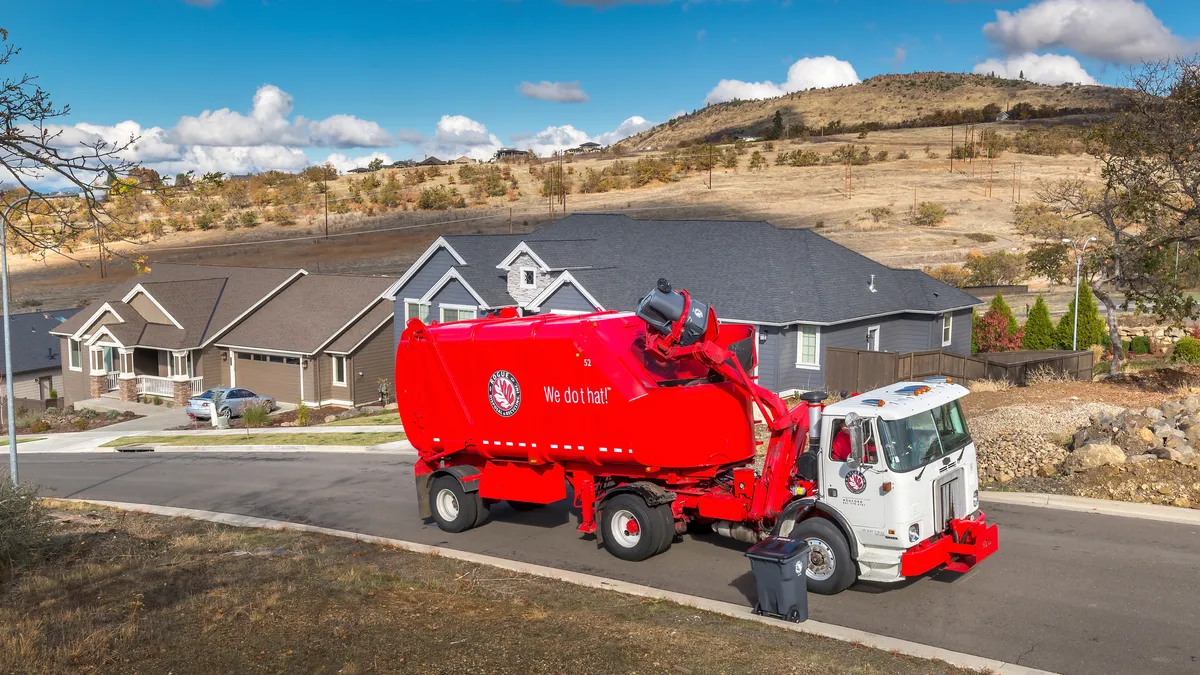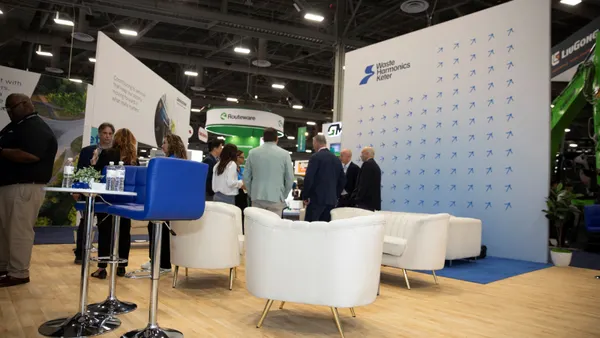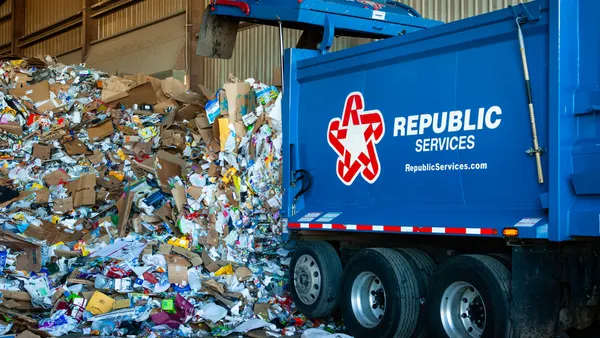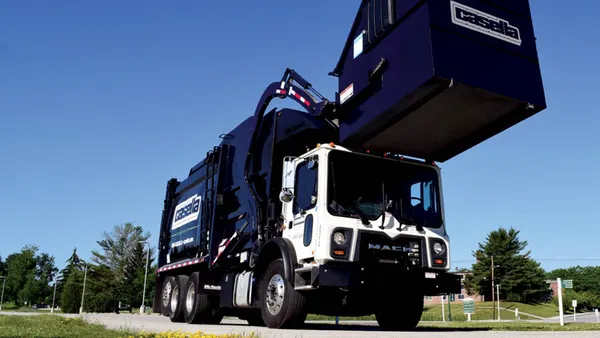Dive Brief:
- Waste Connections has acquired Rogue Disposal & Recycling, a waste and recycling company based in Medford, Oregon. The deal was finalized earlier this week, according to a Rogue representative.
- Rogue services more than 50,000 residential, commercial and industrial customers in the region, with a staff of approximately 150 employees. The company’s key assets include the Dry Creek Landfill, collection operations, a transfer station, a yard waste composting site and a compressed natural gas fueling station.
- Rogue holds multiple long-term franchise collection contracts in the Jackson County area, including with its headquarter city of Medford. The Medford City Council unanimously approved the transfer of that contract to a Waste Connections subsidiary on Sept. 15.
Dive Insight:
Oregon has been an important piece of Waste Connections’ footprint dating back to its earliest years in operation. Now, this acquisition gives the company a sizable presence in the state’s southern region with a set of vertically integrated assets.
Waste Connections was founded in 1997 on the West Coast and some of its first acquisitions included Oregon’s Curry Transfer & Recycling and Arrow Sanitary Service in 1998. Today it has a large presence in the state, including two landfills in northern Oregon, where many communities operate on the company’s preferred franchise contract system. Last year Waste Connections also bought a collection of local hauling companies under the Kahut Waste Services banner, one of multiple notable acquisitions in the region.
Waste Connections is expected to maintain a decentralized approach, as is common for the company, and keep the Rogue branding in place.
“There won’t be any name changes. The colors of the trucks stay the same, the invoices stay the same. So for the most part it will still be run by the local management and the customer really won’t see a difference,” said Garry Penning, Rogue’s director of governmental affairs and marketing, during the recent council meeting. While the company’s general manager is retiring, along with its HR and risk manager, all other employees are expected to remain in place.
According to Penning, Curry Transfer had been a customer of Rogue’s landfill. This will allow Waste Connections to internalize more volumes into its own network.
The Dry Creek Landfill, located in White City, additionally serves customers from northern California, where Waste Connections also has a presence. According to its website, the landfill opened in 1972, handles an average 2,000 tons per day and has a “projected operational life exceeding 100 years.” The site also collects gas to be turned into electricity. Rogue had been planning to eventually upgrade it into renewable natural gas.
In the meantime, the company has been working to convert the majority of its collection fleet to compressed natural gas vehicles and launched the Rogue Clean Fuels station where CNG is available for public purchase. Once its RNG operation was active at the landfill, Rogue then planned to use that gas to fuel these vehicles.
Rogue’s history dates back to 1938, under the name City Sanitary Service, and the company has seen multiple generations of family leadership. Since then it has expanded in the region to include a range of hauling operations with automated collection, a large yard waste composting operation and various drop-off or collection recycling services.
The company gained additional attention in recent years as one of the earliest examples of a recycler feeling the market effects of China’s scrap import policies in 2017. At the time, the economics of recycling were further challenged by the fact that Oregon’s MRF capacity — including assets owned by Waste Connections — is largely located near more populated areas such as Portland, and transportation costs were a strain. Rogue was a regular participant in state stakeholder meetings during this period and worked to pare down its list of accepted materials to certain core items as a result.
Waste Connections, like many of its large competitors, is on pace for yet another year of outsized acquisition activity in 2022 and anticipates closing deals worth at least $470 million in annualized revenue. Other recent notable transactions by the company include the purchase of A.J. Blosenski in Pennsylvania and multiple franchise haulers in California.













